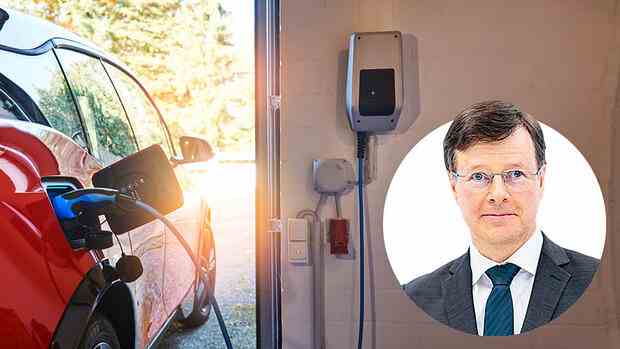The upheaval in German gas supplies as a result of the Ukraine war pushed the climate debate of previous years into the background. However, this does not change the need for action resulting from climate change and the resulting political goals in Germany and the EU.
There is still a lot to be done in the transport sector in particular, the turnaround in transport must be pushed forward with even more determination in Germany.
Time is of the essence, because the EU has decided that from 2035 only zero-emission cars should be registered. As a result, by 2050 at the latest, almost all cars will have to be fully electrically powered. Technically it is possible!
When it comes to the topic of traffic turnaround, it is not just industry that has a say, but also politics. It has to clear the many regulatory hurdles regarding the planning and approval processes for the infrastructure for generating renewable energy, for its nationwide distribution and for a nationwide charging network.
Top jobs of the day
Find the best jobs now and
be notified by email.
There are many correct approaches to this in the “Charging Infrastructure Master Plan II”. However, given the current energy situation, many are wondering whether it will even be possible to provide enough electricity to charge all electric cars in the future. The answer is yes.
>>Read here: Mobility start-up Elvah wants to develop Germany’s decentralized energy storage system
If the current German car population of 48.5 million vehicles is to be completely converted to electromobility over a period of 30 years, the number of electric vehicles will increase by around 1.6 million cars per year. This will increase the electricity requirement by around 4.12 terawatt hours (TWh) per year.
In order to completely cover this amount of electricity with energy from renewable sources, renewable electricity generation in Germany would have to increase by around 1.8 percent annually compared to the current level. The switch to electromobility in Germany will therefore only require a manageable but steady increase in the generation of renewable energy in the coming years.
Rather, the challenge lies in converting the power grids. Electromobility can even help here if its expansion is understood as an impetus for an energy transition in buildings.
Intelligent building systems charge the e-car only when required
Germany faces enormous challenges in terms of energy supply and in particular electricity generation. The political goal of CO2 neutrality ensures that more and more areas are electrified – in addition to mobility, this includes heating buildings. This increases the power requirement.
Despite increasing demand, fossil energy sources are to be replaced by renewable ones. The challenge here is that renewable electricity generation is sometimes subject to strong fluctuations because it depends on the season and the weather.
It also takes place decentrally on roofs and in wind turbines and with a time delay, since photovoltaic systems, for example, produce electricity during the day that is required at night. Our energy system will only be able to withstand the increasingly decentralized generation of electricity if we intelligently interlink generation, distribution, storage and consumption in the future.
Electromobility will become part of the solution if, as part of the expansion, intelligent charging controls move into the buildings, which only charge the electric cars as required and distribute the load of the electricity supply over time.
In the future, the intelligent use of energy must start in buildings – for example with “energy management systems” that should be subsidized by the state.
The electrification of transport must push decentralized power generation
If the individual components in the house of the future – such as photovoltaic systems, battery storage, heat pumps and wallboxes – interact intelligently with the power grid via energy management systems, buildings can contribute to grid stability and thus to security of supply as well as to the traffic turnaround.
In addition, Germany needs high-performance charging stations along the motorways and a comprehensive network of medium-power public charging stations in multi-storey car parks and in residential areas so that people without charging facilities at home also have the option of using an e-car.
This requires funding programs such as those recently announced by the state of Baden-Württemberg. However, coordinated initiatives by all federal states with rapid implementation would be necessary.
The electrification of the vehicle stock in Germany and the resulting pressure to ensure sufficient charging options can and must be the impetus to install intelligent systems for decentralized power generation and storage as nationwide as possible.
The author: Ludwin Monz is CEO of Heidelberger Druckmaschinen, whose subsidiary Amperfied produces charging solutions for electric cars.
More: Volkswagen and Eon are turning electric cars into electricity storage.
